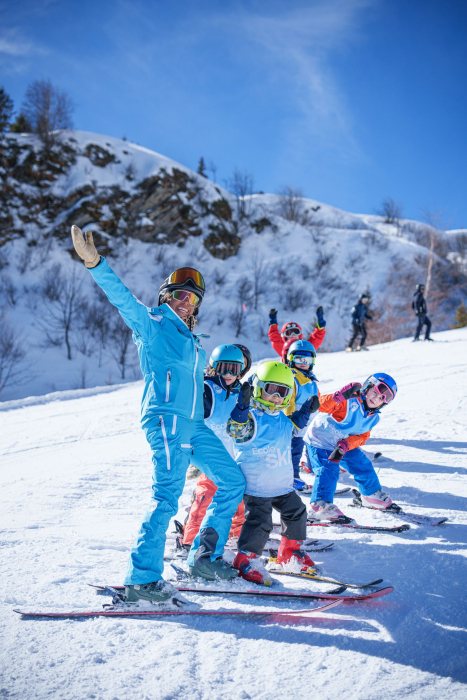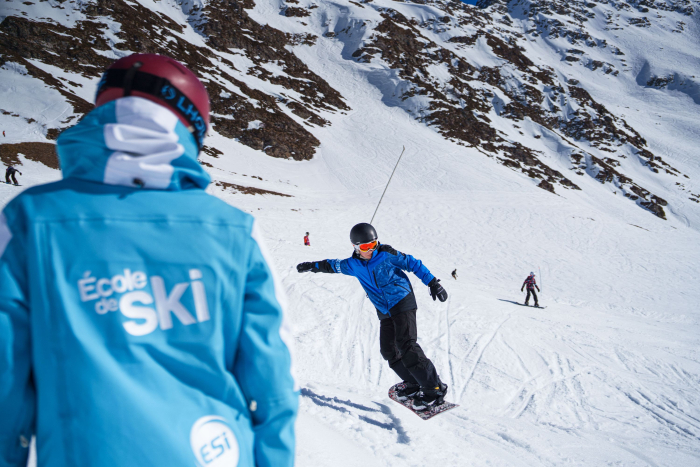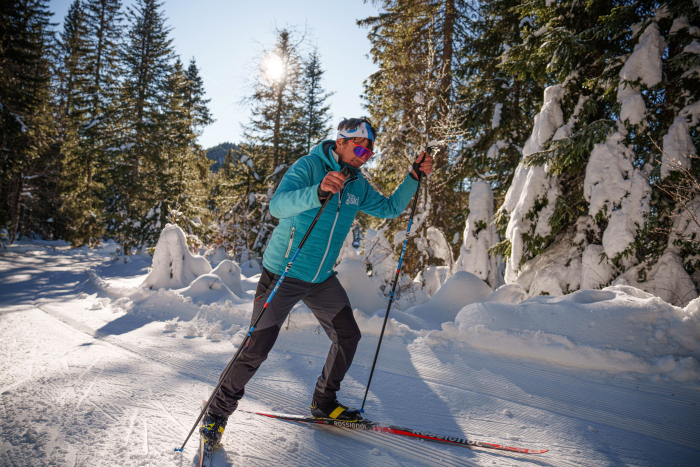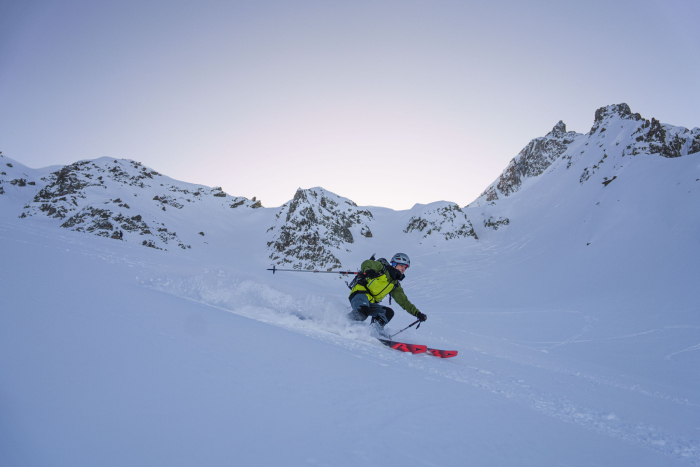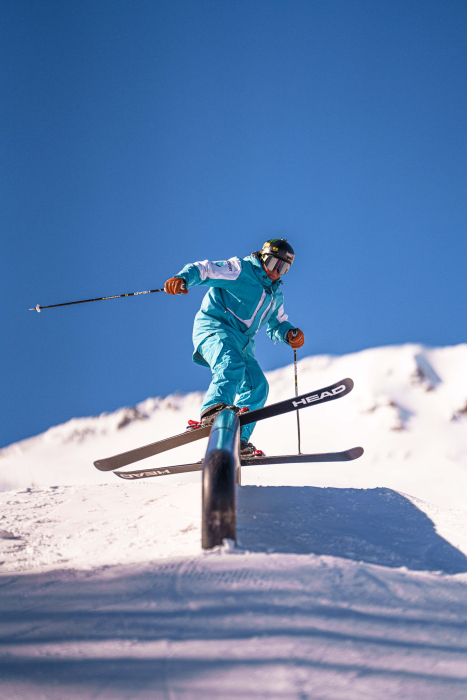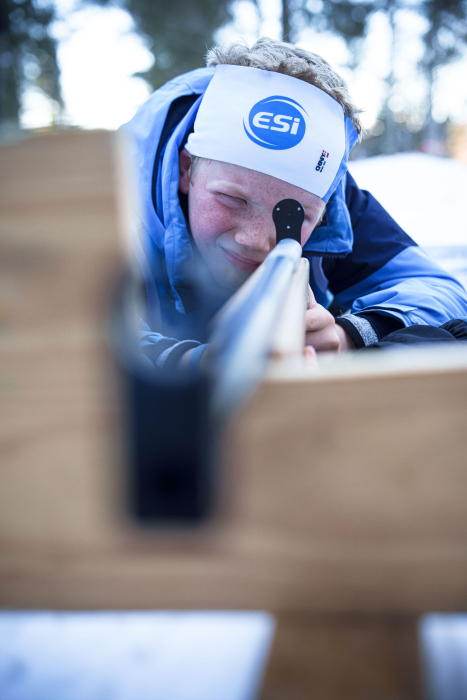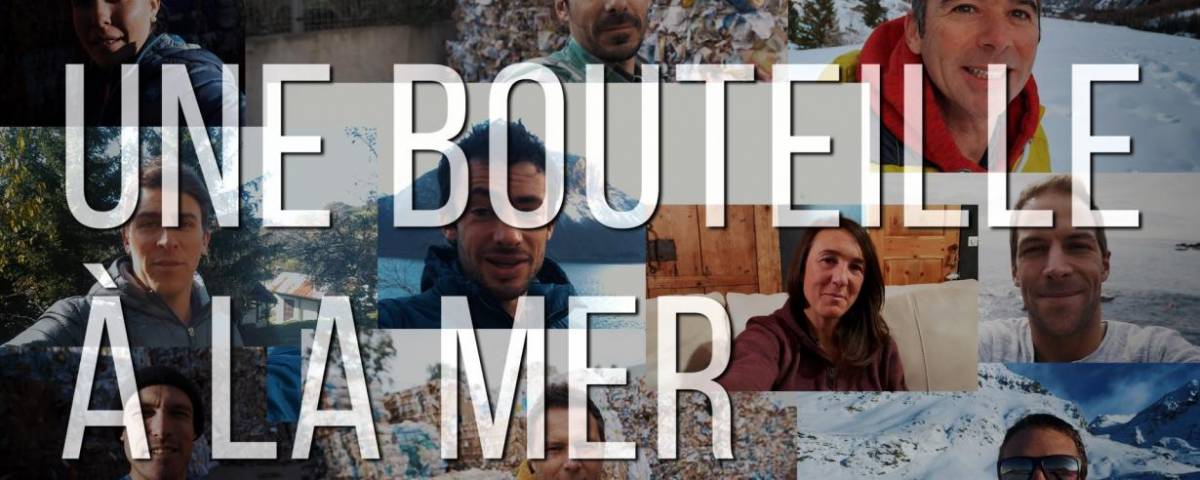At the end of 2019, 10 high-level athletes*, including trail super star Kilian Jornet and Olympic skicross champion Jean-Frédéric Chapuis, got together, voluntarily, at the call of freeskier Mathieu Navillod, for a slightly "trashy" shooting.
Each of them left their activities, their trainings, the time of an appointment... in a waste disposal site. At the Sclavo Environnement Group more precisely, in Fréjus, whose job is to co-construct a circular, virtuous and decarbonized economy so that our waste of today becomes our raw materials and our energy of tomorrow. "It is a cool, independent, spontaneous project, which without taking the head, delivers a positive message," says Jimmy Humphreys, head of communication and development of Sclavo Environment.
The photographer Dom Daher, a specialist in outdoor and action sports, has imagined what could happen to everyone's riding area if nothing is done. A post-apocalyptic vision through 30 pictures that give us food for thought and the desire to act...
* Kilian Jornet (trail, ski-mountaineering), Liv Sansoz (climbing, mountaineering, paragliding), Mathieu Navillod (freeskiing), Stéphane Tourreau (snorkeling), Laurie Renoton (trail), Romain Raisson (paragliding, freeskiing), Jean-Frédéric Chapuis (skicross, mountain biking), Zébulon (mountaineering, paragliding), Rico Leroy (waterman), Emelie Forsberg (trail)
--------------------------
The solution is in our hands every day. Athletes are working on it:
"Be careful: so that when the snow melts, nature is clean underneath. To do this, all you have to do is not throw anything away. Jean-Frédéric Chapuis, Olympic skicross champion.
"We do a lot of things wrong. If we re-educate ourselves, we will in turn re-educate our children. Romain Raisson, skier and paraglider.
"It is only by developing our being and our link to nature that we will (re)become aware of its importance and that we will create actions. Stéphane Tourreau, vice-champion of the world of apnea.
"Ask yourself each time the essential question: "Do I really need it? Continue to live of course, but do it consciously". Liv Sansoz, world champion climber, mountaineer and paraglider.
"The notion of ecology is not necessarily contrary to that of pleasure. It's all about balance and it's not necessarily a complicated goal to reach. Zebulon, mountaineer and paraglider.
"We can always soil the earth, it has experienced so much chaos that it will recover. But it is our future, the humans, that is at stake. Everyone has a role, and we can never do enough. Rico Leroy, waterman.
"We all have a role to play, a minimum. Because when it comes to protecting the environment, even the smallest gestures are useful. Laurie Renoton, trailer, skier and mountain biker.
"We've created mountains of garbage, but by sorting and recycling, we can reduce it considerably. Nothing is lost". Kilian Jornet, trail and ski mountaineering star.
"If I did nothing, it would be a shame. We are not the richest, nor the smartest, but we can try to make things happen. Mathieu Navillod, freeskier
---------------------------
Key recycling info in France:
In 2016, we produced 4.6 tons of waste per capita. Households produced 9% of all French waste. What happens to it? 65% goes to recycling; 29% to disposal; 6% to recovery.
Recycling supplies 66% of the paper industry, 50% of the steel industry, 58% of the glass industry and 6% of the plastics industry.
21 million tons of CO2 are avoided by recycling, the equivalent of 100% of the annual emissions of French air transport or 18% of the annual emissions of the French car fleet, 113 TWH (terawatt hours) avoided, the equivalent of 16 nuclear reactors in France.
17 million tons of raw materials saved.
11 million barrels of oil avoided through energy recovery,
Scrap metal recycling in France represents the equivalent of 1,277 Eiffel Towers.
Paper, rags, wood, aluminum, lead, tires, glass, copper... Almost everything can be recycled. And can be revalorized. An example in detail? Batteries, whose recovery rate is 78.4%. For 1 ton of alkaline batteries, 260 kg of zinc and zinc compounds, 330 kg of iron and nickel-based alloys and 180 kg of various metals such as cobalt or lead are recovered. These metals are then reused in the manufacture of everyday objects such as zinc gutters, stainless steel cutlery, parking bollards, hardware, car sheets, ship hulls, new batteries (nickel) or compounds for photovoltaic panels (cadmium)
Source: ADEME & FEDEREC
The full report can be found on neufdixieme.com
![ESI [Hiver]](/build/assets/images/logo_esi-winter.cbe060df..png)
